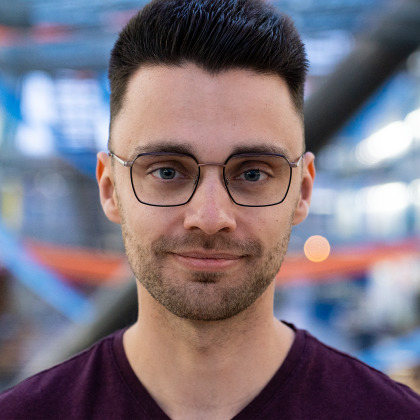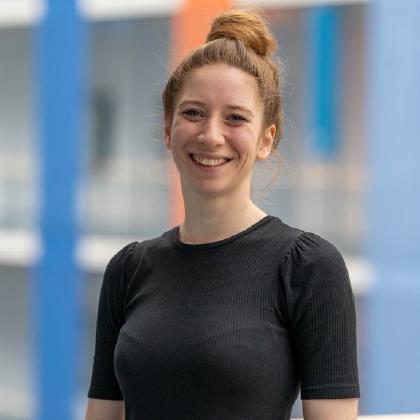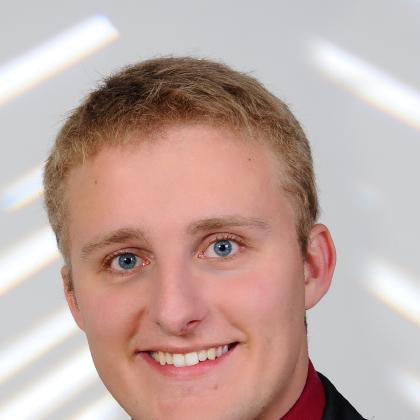↓ 2025
Assessing Teamwork Dynamics in Software Development Projects.
Santiago Berrezueta,
Ivan Parmacli,
Mohammad Kasra Habib,
Stephan Krusche, and
Stefan Wagner.
2025 IEEE Global Engineering Education Conference (EDUCON 2025)
.
London, UK,
January
2025.
doi: 10.48550/arXiv.2501.11965
[BibTeX]
↓ 2024
Transforming Computer-Based Exams With BYOD: An Empirical Study.
Maximilian Sölch,
Markus Paulsen, and
Stephan Krusche.
24th Koli Calling International Conference on Computing Education Research
(Koli '24
)
.
Koli, Finland,
November
2024.
doi: 10.1145/3699538.3699560
[BibTeX]
Interactive Learning in Computer Science Education Supported by a Discord Chatbot.
Santiago Berrezueta,
Ivan Parmacli,
Stephan Krusche, and
Stefan Wagner.
IEEE German Education Conference 2024 (GECon 2024)
Munich, Germamy,
August
2024.
Dynamic Fog Computing for Enhanced LLM Execution in Medical Applications.
Philipp Zagar,
Vishnu Ravi,
Lauren Aalami,
Stephan Krusche,
Oliver Aalami, and
Paul Schmiedmayer.
August
2024.
doi: 10.48550/arXiv.2408.04680
AI-Tutoring in Software Engineering Education.
Eduard Frankford,
Clemens Sauerwein,
Patrick Bassner,
Stephan Krusche, and
Ruth Breu.
IEEE/ACM 46th International Conference on Software Engineering
(ICSE SEET '24
)
.
Lisbon, Portugal,
April
2024.
doi: 10.48550/arXiv.2404.02548
↓ 2023
Constructive Alignment in Modern Computing Education: An Open-Source Computer-Based Examination System.
Matthias Linhuber,
Jan Philip Bernius, and
Stephan Krusche.
23nd Koli Calling International Conference on Computing Education Research
(Koli '23
)
.
Koli, Finland,
November
2023.
doi: 10.1145/3631802.3631818
Is Online Teaching Dead After COVID-19? Student Preferences for Programming Courses.
Stefanie Manger,
Maximilian Sölch,
Matthias Linhuber,
Christoph Weinhuber,
Philipp Zagar, and
Stephan Krusche.
35th IEEE International Conference on Software Engineering Education and Training
(CSEE&T 2023
)
.
Tokyo, Japan,
August
2023.
doi: 10.1109/CSEET58097.2023.00020
[BibTeX]
Diversity and Teamwork in Student Software Teams.
Isabella Graßl,
Gordon Fraser, and
Stephan Krusche.
Proceedings of the 5th European Conference on Software Engineering Education
(ECSEE 2023)
.
Seeon/Bavaria, Germany,
June
2023.
doi: 10.1145/3593663.3593687
[BibTeX]
ChatGPT for Good? on Opportunities and Challenges of Large Language Models for Education.
Enkelejda Kasneci,
Kathrin Sessler,
Stefan Küchemann,
Maria Bannert,
Daryna Dementieva,
Frank Fischer,
Urs Gasser,
Georg Groh,
Stephan Günnemann,
Eyke Hüllermeier,
Stephan Krusche,
Gitta Kutyniok,
Tilman Michaeli,
Claudia Nerdel,
Jürgen Pfeffer,
Oleksandra Poquet,
Michael Sailer,
Albrecht Schmidt,
Tina Seidel, ..., and
Gjergji Kasneci.
In: Learning and Individual Differences, Volume: 103.
March
2023.
doi: 10.1016/j.lindif.2023.102274
Integrating Competency-Based Education in Interactive Learning Systems (Best Practitioner Report Award).
Maximilian Sölch,
Moritz Aberle, and
Stephan Krusche.
13th International Conference on Learning Analytics & Knowledge
(LAK23
)
.
Arlington, TX, USA,
March
2023.
doi: 10.48550/ARXIV.2309.12343
↓ 2022
Balancing Between Creativity and Efficiency in Software Engineering Project Courses.
Ruoqing Wang,
Snezhina Milusheva, and
Stephan Krusche.
29th Asia-Pacific Software Engineering Conference
(APSEC '22
)
.
Virtual,
December
2022.
doi: 10.1109/APSEC57359.2022.00075
[BibTeX]
Machine Learning Based Feedback on Textual Student Answers in Large Courses.
Jan Philip Bernius,
Stephan Krusche, and
Bernd Brügge.
In: Computers and Education: Artificial Intelligence, Volume: 3.
June
2022.
doi: 10.1016/j.caeai.2022.100081
[BibTeX]
↓ 2021
A Machine Learning Approach for Suggesting Feedback in Textual Exercises in Large Courses.
Jan Philip Bernius,
Stephan Krusche, and
Bernd Brügge.
8th ACM Conference on Learning @ Scale
(L@S '21)
.
Potsdam, Germany,
June
2021.
doi: 10.1145/3430895.3460135
[BibTeX]
Toward Computer-Aided Assessment of Textual Exercises in Very Large Courses.
Jan Philip Bernius.
52nd ACM Technical Symposium on Computer Science Education
(SIGCSE '21, 1386)
.
Toronto, ON, Canada,
March
2021.
doi: 10.1145/3408877.3439703
[BibTeX]
↓ 2020
Towards the Automation of Grading Textual Student Submissions to Open-Ended Questions.
Jan Philip Bernius,
Anna Kovaleva,
Stephan Krusche, and
Bernd Brügge.
4th European Conference of Software Engineering Education
(ECSEE '20, 61-70)
.
Seeon, Germany,
May
2020.
doi: 10.1145/3396802.3396805
[BibTeX]
Segmenting Student Answers to Textual Exercises Based on Topic Modeling.
Jan Philip Bernius,
Anna Kovaleva, and
Bernd Brügge.
17th Workshop on Software Engineering im Unterricht der Hochschulen
(SEUH '20, 72-72)
.
Innsbruck, Austria,
February
2020.
[BibTeX]
↓ 2019
Toward the Automatic Assessment of Text Exercises.
Jan Philip Bernius, and
Bernd Brügge.
2nd Workshop on Innovative Software Engineering Education
(ISEE '19, 19-20)
.
Stuttgart, Germany,
February
2019.
[BibTeX]
↓ 2018
Software Theater - Teaching Demo-Oriented Prototyping.
Stephan Krusche,
Dora Dzvonyar,
Han Xu, and
Bernd Brügge.
In: ACM Transactions on Computing Education, Volume: 18.
January
2018.
doi: 10.1145/3145454
[BibTeX]
↓ 2016
Context-Aware User Feedback in Continuous Software Evolution.
Dora Dzvonyar,
Stephan Krusche,
Rana Alkadhi, and
Bernd Brügge.
International Workshop on Continuous Software Evolution and Delivery
(CSED@ICSE '16, 12-18)
.
January
2016.
doi: 10.1145/2896941.2896952
[BibTeX]
Rugby - A Process Model for Continuous Software Engineering.
Stephan Krusche.
Dissertation, Technical University of Munich
Munich, Germany,
January
2016.
[BibTeX]
↓ 2015
Using Software Theater for the Demonstration of Innovative Ubiquitous Applications.
Han Xu,
Stephan Krusche, and
Bernd Brügge.
2015 10th Joint Meeting on Foundations of Software Engineering
(ESEC/FSE '15, 894-897)
.
January
2015.
doi: 10.1145/2786805.2803207
[BibTeX]
Software Engineering Project Courses With Industrial Clients.
Bernd Brügge,
Stephan Krusche, and
Lukas Alperowitz.
In: ACM Transactions on Computing Education, Volume: 15.
January
2015.
doi: 10.1145/2732155
↓ 2014
Introduction of Continuous Delivery in Multi-Customer Project Courses.
Stephan Krusche, and
Lukas Alperowitz.
36th International Conference on Software Engineering
(ICSE '14, 335-343)
.
January
2014.
doi: 10.1145/2591062.2591163
[BibTeX]





